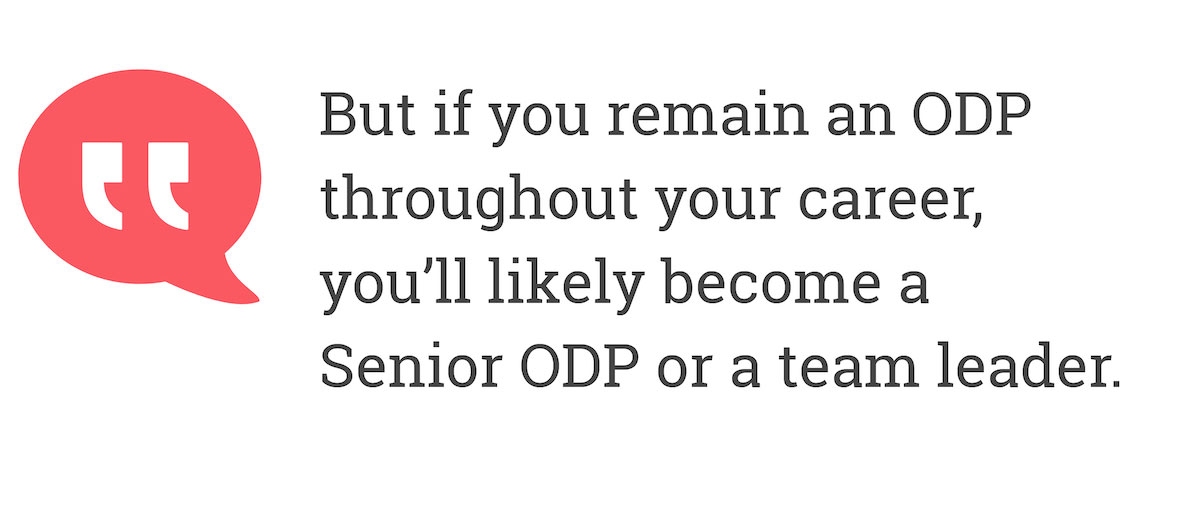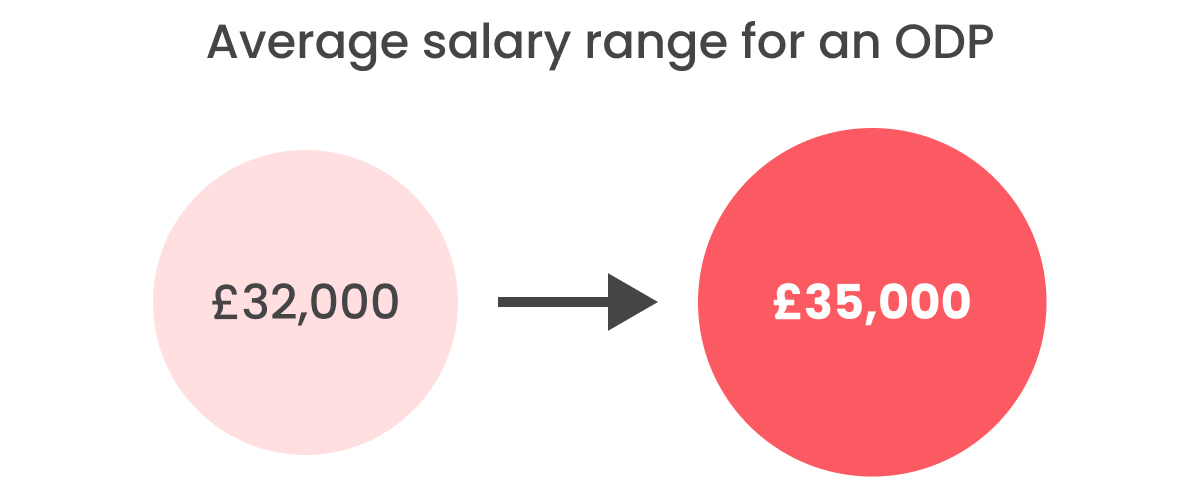- 29 July 2021
- 5 min read
Operating Department Practitioner (ODP) Salary & Pay Guide
Subscribe "The maximum amount you can earn as an ODP depends greatly on the direction your career takes."
"The maximum amount you can earn as an ODP depends greatly on the direction your career takes."What sort of pay can you expect as an Operating Department Practitioner? And what are the long-term career progression options?
Operating Department Practitioners (ODPs) play a vital role in different phases of a patient’s surgery.
These phases include anaesthetic, surgery and recovery.
As well as preparing the operating theatre, you’ll be an important link between the surgical team and other parts of the operating theatre and hospital.
It’s a hugely rewarding position, offering lots of room for personal and professional development.
This guide answers the most fundamental questions about ODP pay in the UK, from starting salaries through to how to maximise your earnings throughout your career.
The Government have recently announced a 3% pay rise for all NHS staff, have a look at our pay calculator to find out how much your salary will increase by.
What Is The Starting Salary For An ODP?
The starting salary for an ODP is currently £24,907 a year – an NHS Band 5 salary.
ODPs do work in the private sector, but private hospital roles almost always require some postgraduate experience.
What Is The Average Salary For An ODP?
The average salary for an ODP is around £32,000 a year.
This is based on industry statistics, and probably reflects an Operating Department Practitioner with several years of experience who’s been able to rise to the top of a Band 5 salary.
A Band 6 salary, which many ODPs will reach with enough experience, currently starts at £31,365 a year.









About this contributor
Nurses.co.uk Founder
I launched Nurses.co.uk (and subsequently Socialcare.co.uk, Healthjobs.co.uk and Healthcarejobs.ie) in 2008. 500 applications are made every day via our jobs boards, helping to connect hiring organisations recruiting for clinical, medical, care and support roles with specialist jobseekers. Our articles, often created by our own audience, shine a light on the career pathways in healthcare, and give a platform to ideas and opinions around their work and jobs.
More by this contributorWant to get involved in the discussion?
Log In Subscribe to comment